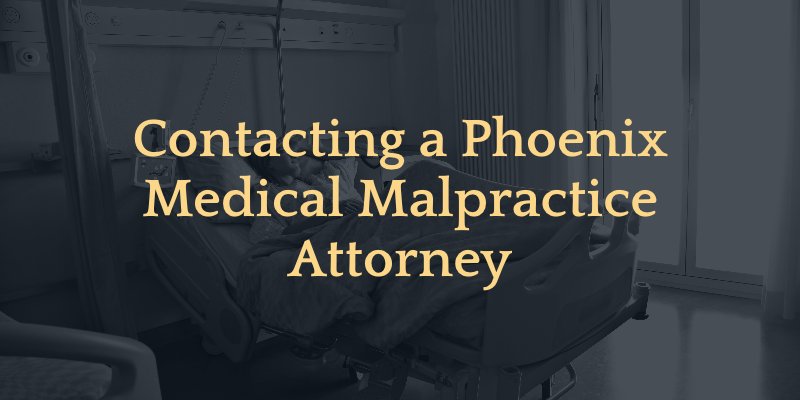With obesity at all-time highs, more and more people are reaching the point of desperation about their weight. Gastric bypass is major abdominal surgery. Different bariatric procedures have been developed that use banding, stapling, or rerouting of the upper digestive tract—stomach and small intestine—to reduce the ability to ingest large quantities of food and to reduce the amount of absorption of that which is ingested.
It’s easy to understand why these procedures have become so popular; they offer hope to those whose past efforts have made them feel hopeless. The dangers of obesity to health are many, and bariatric surgery offers the obese a ticket to better health, appearance, and body image enjoyed by their thinner compatriots.
When a surgeon harms a patient because of a medical error during surgery, the victim will often recover money as compensation for his or her damages through a civil medical malpractice action; however, that is far from what the patient is owed. In order to receive full compensation for your complications due to a medical error, talk to a Phoenix medical malpractice lawyer to understand your options.
Types of Gastric Bypass Surgeries
The bariatric procedures now available for people struggling with obesity have been refined over decades of research to aid in weight loss in a number of different ways, all of which address the goal of limiting the amount of food the patient can intake and/or the amount the body is able to absorb and store as fat. The following types of bariatric procedures are commonly performed today:
- A Sleeve Gastrectomy, also called “the sleeve” uses surgical staples to remove 80% of the stomach in a non-reversible procedure, leaving an amount of stomach space similar to the size and shape of a banana. Not only does it limit the amount of food the stomach can hold, but surgeons target the part of the stomach most responsible for producing the feeling of hunger.
- Roux-en-Y Gastric Bypass Surgery popularly known as a “gastric bypass” divides the stomach so the usable portion remaining is egg-sized while the rest is bypassed. Surgeons then reattach the small intestine to the new, smaller stomach, forming a Y shape. The procedure results in less stomach capacity so patients feel full on much smaller amounts of food. It also decreases absorption by bypassing the portion of the small intestine responsible for the greatest amount of absorption. This procedure also reduces acid reflux, while a sleeve gastrectomy may worsen reflux symptoms.
- Adjustable Gastric Band Surgery places a band-like silicone device around the top of the stomach, effectively tying off the remainder and leaving a small pouch and narrow channel into the lower part of the stomach. This causes the person to feel full much sooner while it takes more time for the food they intake to make its way to the remainder of the digestive system. The adjustable band allows variation in the size of the channel. This is the most modest bariatric surgery available and allows the greatest absorption of nutrients with the lowest risk of nutritional deficiencies compared to other procedures.
- The Biliopancreatic Diversion with Duodenal Switch surgery creates a smaller, tube-like stomach which is then attached to the lower part of the small intestine, reducing the ability to absorb food before it passes into the large intestine.
- Single Anastomosis Duodenal-Ileal Bypass with Sleeve Gastrectomy is similar to a gastric bypass in that it leaves only a small, sleeve-like stomach. Then the surgeons attach a loop of the small intestine directly to the new, smaller stomach, bypassing a portion of the small intestine while still allowing its digestive enzymes to mix with the food to minimize nutrient loss while still limiting absorption.
All of these procedures have their unique advantages and drawbacks and all are approved for weight loss and the improvement of obesity-related medical conditions such as Type 2 Diabetes by the American Society for Metabolic and Bariatric Surgery.
Complications from Gastric Bypass Surgeries
Is the surgical solution to obesity too good to be true? Not necessarily. It has helped many people gain a better life and improved health. More than 140,000 of the procedures are performed annually in the United States, many with excellent results.
One problem lies in the fact that the demand is so great, many doctors are jumping on the bandwagon, but without the proper training or experience. The result: complications, illness, and death.
Research shows that surgeons who have performed fewer than 70 to 100 bypass procedures have many more complications than those with more substantial bariatric surgery experience. One in every 200 to 300 gastric bypass patients dies as a result of having the surgery. Most of these deaths are preventable.
Some of the complication risks associated with gastric bypass surgeries include the following:
- Anesthesia risks
- Breakage
- Internal bleeding
- Leakage
- Stomach or intestinal perforation
- Blood clots
- Spleen or organ injury
- Acid reflux
- Chronic problems with nausea and vomiting
- Esophageal dilation
- Infection
- Stomach obstruction
- Inability to eat some foods
- Chronic “Dumping Syndrome” with nausea and dizziness
- Malnutrition
- Low blood sugar
- Bowel obstructions and hernias
- Ulcers
While no surgery is without risk, in cases when avoidable injuries occur due to a physician’s error or negligence, they are liable for the harm caused.
What Types Of Physician Error Might Indicate Malpractice
Certain relatively common complications may indicate medical malpractice, especially when they are not recognized, diagnosed, and treated promptly: These are some medical errors that might expose the surgeon to liability for medical malpractice:
- Failing to diagnose and treat serious infections including sepsis/septicemia
- Failing to diagnose and treat perforation or leakage of gastric fluid, resulting in inflammation, infection, or peritonitis
- Failing to diagnose and treat pulmonary embolism, a blood clot traveling to the lung
- Operating on a patient who is not a proper candidate for gastric bypass surgery
- Failure to advise the patient on post-surgical nutritional requirements, resulting in malnutrition, which can lead to serious neurological problems and cognitive deficits
What to Do if Your Surgeon is Ignoring Your Symptoms
Surgeons bear the obligation to carefully monitor their patient’s progress after surgery. This includes listening carefully and taking any complaints of symptoms seriously since failing to do so may result in serious harm or even death. If you feel your surgeon is dismissing your post-operative complaints, the following tips may help them take your concerns more seriously:
- Instead of just telling a doctor your symptoms, ask questions in order to better focus their attention on providing answers. Ask questions like, “What could this be?” and “What should I do if this symptom gets worse?” or “What else do you think this could be?”
- Ask for a referral to a specialist
- Be clear and concise about your symptoms
- Be truthful when a doctor asks you, “How are you feeling?” instead of answering “fine, but…”
- Be prepared during follow-up appointments by keeping a journal of your symptoms each day
- Tell your doctor you’re considering going to an ER
- Bring a loved one with you to your follow-up appointments to help validate your concern about your symptoms
- See your regular, trusted physician and talk to him/her about your symptoms
If a doctor continues to ignore your complaints of symptoms and the result is a post-surgical complication, this could be medical malpractice.
The Importance Of Having The Right Gastric Bypass Lawyer In Arizona
Medical malpractice cases are extremely complex and demanding, requiring an attorney with specific experience in this type of case. In addition to being thoroughly familiar with Arizona statutes and case law, your attorney will need to be familiar with both medical terminology and standards of practice in the state’s medical community and will need to have respected medical experts available to assist in evaluating your medical records and to testify in your behalf. Experience and a history of success with medical malpractice cases are important considerations when choosing the right Phoenix gastric bypass lawyer to represent you.
Types of Damages You Can Recover After Gastric Bypass Malpractice
Correct, diligently performed bariatric surgery can help treat obesity and its related medical problems. But when a busy doctor or medical team makes a mistake during this type of surgery it sometimes causes great harm. Victims of this type of medical malpractice deserve compensation for their economic and non-economic damages. A successful malpractice claim can result in the following compensation:
- Medical expenses and future medical expenses
- Lost wages and future lost earnings during your illness and/or corrective procedures
- Compensation for pain and suffering
- Compensation for lowered quality of life
- Funeral expenses in cases of medical malpractice leading to a wrongful death case
If you or a loved one suffered due to a mistake or negligence related to gastric bypass or other bariatric surgery, you deserve justice and compensation for the damages caused.

What to Do if You Suspect Malpractice
If you suspect your gastric bypass procedure or other bariatric surgery did not go as planned due to medical malpractice, you can do the following to help your physical and financial health:
- Make an appointment as soon as possible with your regular doctor or ask them to recommend a specialist
- Get detailed records from your new doctor about your condition including the diagnosis, treatment recommendations, and prognosis
- Ask the hospital or surgical center where your procedure took place for a copy of your medical records
- Keep copies of all your medical bills
- Follow your new doctor’s instructions carefully and attend all scheduled appointments, treatments, and followups
- Contact a medical malpractice attorney in Phoenix to evaluate your case
Put Experienced Phoenix Gastric Bypass Attorneys On Your Side
The dedicated Phoenix personal injury attorneys at the Phoenix law firm of Knapp & Roberts have the experience and expertise that a challenging gastric bypass malpractice action requires. We have specific experience with this relatively new type of surgery and have succeeded in obtaining substantial monetary awards for our clients. We understand what can go wrong when unskilled, inexperienced, or simply negligent and incompetent doctors fail to take every precaution to safeguard your health before, during, and after the surgery.
A doctor performing a gastric bypass has the legal responsibility to provide every patient with the standard of care that the Arizona medical community expects of any reasonably competent bariatric surgeon. a Phoenix gastric bypass lawyer at Knapp & Roberts will determine when and how your doctor failed to meet this standard, in order to prove malpractice and obtain compensation from the doctor or hospital.
We are a client-focused law firm in which your needs always come first. We return emails and phone calls and keep you in the loop about the progress of your case. Most malpractice cases settle out of court, but if necessary, we are always willing and prepared to present a powerful case to a jury.
Free Consultation
Call to schedule a free consultation today. Because Arizona has strict statutes of limitations restricting the amount of time you have to begin a medical malpractice action, it is important to get started right away, to protect your right to recover compensation. If you have a viable case, we will front all the expenses and our work, and you will pay us nothing unless and until our attorneys win money for you.
Let us tell your story
WE CARE, AND WE CAN HELP. CONTACT US 480-991-7677 OR FILL OUT THE FORM BELOW
The personal injury attorneys in Phoenix, Arizona, at Knapp & Roberts have the compassion and trial lawyer skills to tell your story to a jury. We will get to know you and your family so that we can help the jury understand what has happened to you and your family and how it has changed your lives. Obtain the compensation necessary for the injuries and losses you have suffered.
